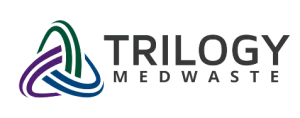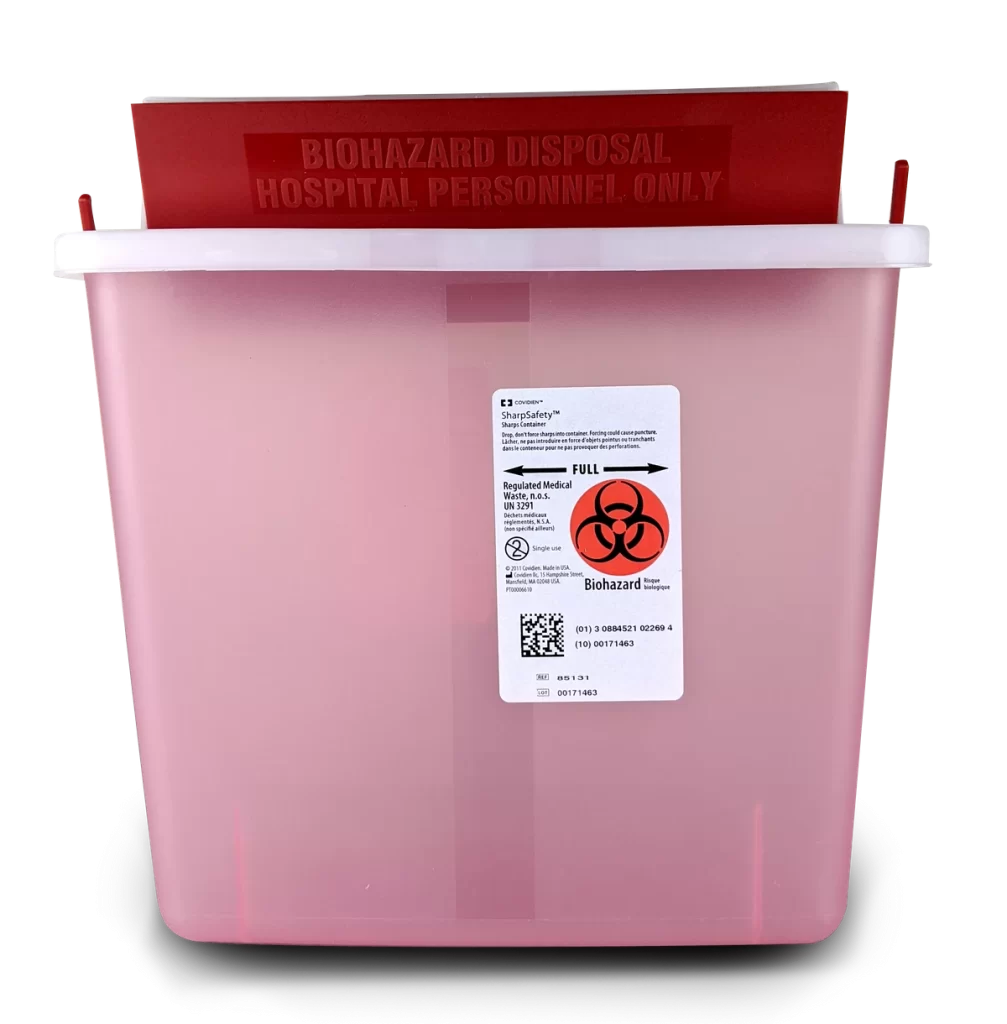Florida Regulated Medical Waste Compliance Standards
In the state of Florida, regulatory authority over medical waste is shared between The Department of Environmental Protection and the Department of Health. The Department of Environmental Protection has primary responsibility for biomedical waste incineration and final disposal. The Department of Health has primary authority and responsibility for facilities that generate, transport, store, or treat biomedical waste through processes other than incineration.
Section 381.0098, Florida Statutes and Chapter 64E-16, of the Florida Administrative Code (FAC) provides guidance to facilities that generate biomedical waste to aid them in ensuring proper management of that waste. Aspects of medical waste management are also controlled by the Occupational Safety & Health Administration (federal and/or state) and Department of Transportation (federal and state). Additionally, Local County Health Departments often have additional regulations and requirements specific to their jurisdictions.
How Florida Defines Medical Waste
In Florida, “medical waste” is defined as any solid waste that is generated in the diagnosis, treatment, or immunization of human beings or animals, in research pertaining thereto, or in the production or testing of biologicals. This definition includes but is not limited to:
- Sharps: Needles, syringes, scalpels, and other sharp items that can cause punctures or cuts.
- Biohazardous Waste: Items contaminated with blood or other potentially infectious materials, such as bandages, gauze, and gloves.
- Pathological Waste: Human tissues, organs, body parts, and body fluids that are removed during surgery or autopsy.
- Microbiological Waste: Laboratory waste containing cultures and stocks of infectious agents.
- Other Contaminated Materials: Items that have come into contact with infectious agents or body fluids, such as certain types of personal protective equipment (PPE) and disposable instruments.
Medical Waste Generators in Florida
According to Florida regulations, generators of medical waste include a variety of healthcare and related facilities where medical waste is produced. These generators are categorized into different types based on their operations:
- Hospitals
- Clinics and Medical Offices
- Nursing Homes and Long-Term Care Facilities
- Laboratories
- Blood Banks
- Ambulatory Surgical Centers
- Veterinary Clinics and Animal Hospitals
- Funeral Homes and Mortuaries
- Pharmacies
These facilities are required to follow specific regulations for the handling, storage, treatment, and disposal of medical waste to ensure safety and compliance with state laws.
Packaging, Labeling and Storage Regulations
Florida calls for specific procedures to be followed for the packaging and storage of medical waste to ensure safety and compliance with regulations. These include:
- Packaging:
- Containment: Medical waste must be placed in red or orange bags that are clearly labeled with the international biohazard symbol and the word “BIOHAZARD.”
- Sharps: Items like needles and syringes must be placed in puncture-resistant, leak-proof, and labeled sharps containers.
- Double Bagging: If there is a possibility of leakage, the medical waste should be double-bagged.
- Sealing: Bags and containers must be securely sealed to prevent leaks and spills.
- Labeling:
- Identification: Containers must be labeled with the name, address, and phone number of the generating facility.
- Date: The date when the waste was first placed in the container must be marked on the container.
- Storage:
- Location: Medical waste must be stored in a designated, secure area that is separate from areas used for food preparation or patient care.
- Containment: Storage areas must be equipped with secondary containment systems to capture spills or leaks.
- Temperature Control: If the waste is to be stored for more than 30 days, it must be refrigerated or frozen to prevent decomposition.
- Access: Storage areas should be accessible only to authorized personnel and should be locked when not in use.
These procedures are designed to minimize the risk of exposure to infectious agents, ensure environmental protection, and comply with state regulations.
Disposal Regulations
Specific procedures must be followed in the State of Florida for the disposal of medical waste. These procedures include:
- Treatment Before Disposal:
- Sterilization: Medical waste must be treated to render it non-infectious before disposal. Common methods include autoclaving (steam sterilization), incineration, chemical disinfection, and other state-approved technologies.
- Documentation: Facilities must keep records of the treatment process, including dates, methods used, and personnel involved.
- Transport:
- Licensed Transporters: Medical waste must be transported by licensed medical waste transporters. Facilities can transport their own waste if they are registered with the state and meet specific requirements.
- Containers: Waste must be transported in leak-proof, labeled containers that are secure and prevent exposure to handlers and the public.
- Tracking: Transporters must maintain a tracking system, often using a manifest or log, to document the movement of medical waste from the point of generation to the disposal facility.
- Disposal Sites:
- Permitted Facilities: Medical waste must be disposed of at facilities that are permitted to handle such waste. These facilities include incinerators, autoclaves, and other treatment centers that comply with state regulations.
- Landfills: Treated medical waste that has been rendered non-infectious can be disposed of in approved landfills. Untreated medical waste is not allowed in landfills.
- Record Keeping:
- Documentation: Facilities generating medical waste must keep detailed records of the amounts of waste generated, treated, and disposed of, including dates and methods of disposal.
- Retention: These records must be kept for a specified period, often several years, as required by state regulations.
- Inspections and Compliance:
- Regular Inspections: The Florida Department of Health and other regulatory bodies conduct regular inspections of facilities that generate, treat, transport, and dispose of medical waste to ensure compliance with state laws and regulations.
- Violations: Facilities found to be in violation of regulations may face penalties, including fines and revocation of permits or licenses.
- Training and Education:
- Employee Training: Facilities must ensure that all employees involved in the handling, treatment, transport, and disposal of medical waste receive proper training on safety procedures, regulatory requirements, and emergency response protocols.
All medical waste generators in Florida are responsible for maintaining compliance with local, state, and federal regulations governing the management, storage, treatment, and disposal of medical waste. This content is provided for general informational purposes only and is intended as a high-level overview. For the most current and detailed requirements, please refer to the applicable regulatory authority in your jurisdiction.



